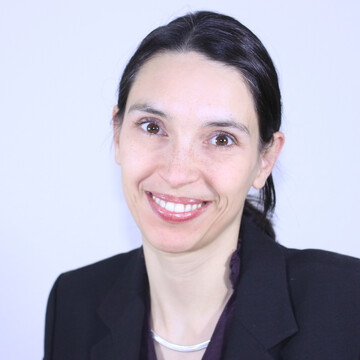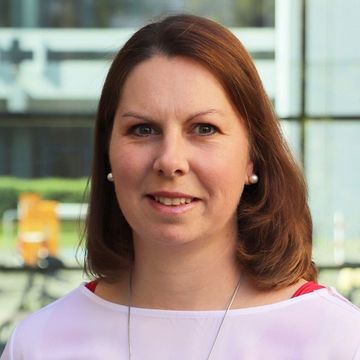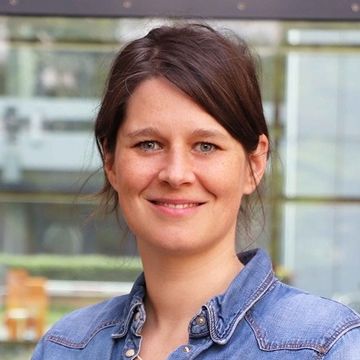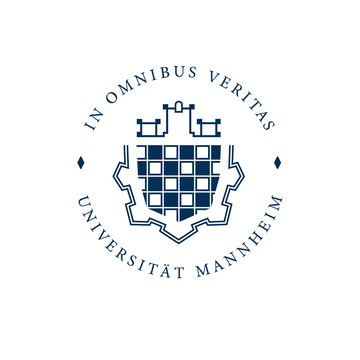Extension of deadlines
In which cases can I request a deadline extension?
The examination committee may decide to extend certain deadlines, provided there is a valid reason why you are unable to meet the deadline in question. This might include deadlines for
- the preparation period for your final thesis
- the limit to the maximum period of study
As a rule, extensions will only be granted if you cannot be held accountable for missing the deadline in question. Valid reasons for missing a deadline might include:
- a long period of illness
- a permanent disability
- family obligations
For further details, please see the examination regulations for the Mannheim Master in Data Science program.
How can I request a deadline extension?
Extension requests must be submitted to the examination committee in writing. Please make sure to indicate your address, student ID number and e-mail address in case we need to contact you for follow-up questions. We also ask you to state the semester in which you started your master's program so that we know straight away which examination regulations apply to you.
The examination regulations stipulate that students need to resit any examinations they fail or did not take due to illness at the earliest opportunity. If this is the case, you will be automatically registered by Student Services (mandatory registration). Further information is provided by Student Services.
Your request must include a detailed justification explaining why you should be granted an extension of the applicable deadline.
Please make sure to attach any documents justifying your claim (if applicable to the individual case). Documents of this kind may include:
- medical certificates
- (birth) certificates
- official letters from public authorities / agencies / institutions
The examination committee will then consider your request and either grant or deny you the extension. You will receive an official notification outlining the reasons for the decision.
Degree plans and course schedules
Note: this page describes the updated structure of the MMDS for students starting from HWS 2024. Students who started earlier find information on their study program here.
The Mannheim Master in Data Science (MMDS) program equips students with the knowledge and skills necessary to gain operational insight into large and complex datasets. It covers seven major areas: Fundamentals, Data Management, Data Analytics, Responsible Data Science, Data Science Applications, Projects and Seminars, and the Master’s Thesis.
Fundamentals (27 ECTS)
The goal of the Fundamentals area is to align the different knowledge students acquired in their previous degree programs. Graduates of computer science and mathematics programs will acquire the knowledge required in empirical research (in particular, data collection and multivariate statistics). Graduates of social sciences programs and other fields will acquire the knowledge required in computer science (in particular, programming and database technology).
Data Management (6–24 ECTS)
One of the central challenges in the Big Data area is to handle the enormous amount, speed, heterogeneity, and quality of the data collected in industry, the public sector, and science. The Data Management area covers methods and concepts for obtaining, storing, integrating, managing, querying, and processing large amounts of data. The area includes courses on modern data management technology (such as parallel database systems, Spark, and NoSQL databases), data integration, information retrieval and search, software engineering, and algorithms.
Data Analytics (12–36 ECTS)
The Data Analytics area forms the core of the study program. It provides courses ranging from data mining, machine learning, and decision support, over text analytics and natural language processing, to advanced social science methods such as cross-sectional and longitudinal data analysis. The range of methodological courses is enhanced by courses on optimization, visualization, mathematics and information, and algebraic statistics.
Responsible Data Science (3 – 7 ECTS)There are great concerns about the use of data. A variety of stakeholders are increasingly becoming concerned about the irresponsible use of data. Within this field, students study data science techniques, infrastructures and approaches in order to make them more responsible.
Data Science Applications (0 – 12 ECTS)
The data science applications block comprises courses offered by different schools, such as business, humanities, and social science, which discuss data-driven methods in different application areas.
Projects and Seminars (14 – 18 ECTS)
The Projects and Seminars area introduces students to independent research and teaches the skills necessary to successfully participate in and contribute to larger data science projects. The area consists of research seminars, individual projects, team projects. The projects are conducted jointly with industrial partners and/
or support ongoing research efforts of participating institutes. Master’s Thesis (30 ECTS)
In the master’s thesis, students apply what they learned throughout the program. The master’s thesis is written over a period of six months. Students are encouraged to write their thesis either in the context of research projects conducted by participating institutes or in cooperation with an industrial partner. Students often write their master’s thesis in cooperation with a company from the MMDS Industry Partner Network.
Examinations
There are various forms of examination at the University of Mannheim, with written examinations playing a central role. These are held in fixed examination periods. There are two examination periods per semester: The first usually begins immediately after the end of the lecture period, while the second usually starts in the week before the start of the new semester.
In addition to written examinations, students also have other examination formats at their disposal, such as assignments, projects or oral examinations. These offer the opportunity to perform individually in different contexts.
You can find more information about examinations here.Examination regulations and module catalog
The module catalog 2024/
2025 (PDF, 2 MB) and the appendix (PDF, 320 kB) give an overview of the course and contents of the program. Please read the examination regulations of your program carefully.
Examination committee
Chairman

Prof. Dr. Margret Keuper
Professor for Machine LearningUniversity of Mannheim
Professur für Machine Learning
B 6, 26, B1.18
B6, 26 – Room B1.18
68159 MannheimStudent representative:
You can contact the examination committee via pruefungsausschuss.wimuni-mannheim.de
Tasks of the central examination committee
We are responsible for the following topics:
- Advice on examination regulations
- Advice on module changes
- Advice in individual cases (such as extension of deadlines)
- Approval of reasons for withdrawal or delay
- Extension of examination deadlines
- Serious cases of cheating and breaches of regulations
- Determination of definitive failure with no option to re-sit
- Identification of missed deadlines
- Invalidity of examinations
- Appeal procedure
- Recognition of coursework and examinations
- Semester recognition certificates for BAföG, form 5 according to § 48 BAföG (also for LAG WPO)
 Credit: Emilie Orgler
Credit: Emilie OrglerBirgit Czanderle, M.A.
Student Success Coordinator, Study Coach Business Informatics, MMDS and MMSDS, Contact to Examination CommitteeUniversity of Mannheim
School of Business Informatics and Mathematics
B 6, 26
Gebäudeteil B – Room B 0.05
68159 MannheimConsultation hour(s):
by appointmentAdvisory service
The student advisory (run by the study coach and program manager) is a combined offer for the Mannheim Master in Data Science program.
You can consult us in questions regarding:
- the study program
- the module catalog
- the examination regulations
- cases of hardship
- questions about module changes
- course contents
- your degree plan (modules, tracks, thesis)
You can contact the advisory service via studienberatung.wimuni-mannheim.de.
 Credit: Emilie Orgler
Credit: Emilie OrglerBirgit Czanderle, M.A.
Student Success Coordinator, Study Coach Business Informatics, MMDS and MMSDS, Contact to Examination CommitteeUniversity of Mannheim
School of Business Informatics and Mathematics
B 6, 26
Gebäudeteil B – Room B 0.05
68159 MannheimConsultation hour(s):
by appointment Credit: Emilie Orgler
Credit: Emilie OrglerLisa Wessa, M.A.
Program Manager B.Sc. Business Mathematics, B.Sc. Business Informatics, Mannheim Master in Data ScienceUniversity of Mannheim
School of Business Informatics and Mathematics
B 6, 26
Gebäudeteil B – Room B1.04
68159 MannheimConsultation hour(s):
You can reach me Mondays 11:00 a.m – 12:00 p.m. via phone or via E-Mail. Online-Appointments are possible.
Contact the School of Business Informatics and Mathematics
University of Mannheim
School of Business Informatics and Mathematics
B6, 26
68159 MannheimConsultation hour(s):
by appointment via e-mailMaster's thesis
Finding a supervisor and a topic for your master’s thesis requires early planning and initiative on your part. It is primarily your responsibility as a student to contact a chair that fits your study profile. This means that you need to contact several chairs or professors on your own initiative in order to find someone who will agree to supervise your master's thesis. It is the norm that students contact the chairs personally, and something we expect from students at our school.
Who can supervise my master's thesis?
In general, all professors teaching courses in the MMDS program also supervise master’s theses. However, professors from other schools and departments may also do so, provided the topic falls within the scope of the MMDS program.
Industry Partner Network
MMDS students often write their master’s thesis in cooperation with a company from the MMDS Industry Partner Network.
